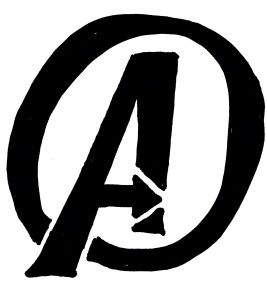Every FYC awards screener mailed to critics this time of year includes severe legal verbiage about how they are to be viewed, warning against obvious transgressions like online piracy and more grey-area faux pas like watching soon-to-be-distributed titles in the presence of family & friends. Given that these screeners tend to flood critics’ inboxes in the holiday stretch between Thanksgiving & Christmas, it’s safe to assume that second warning is widely ignored. Critics, film journalists, and awards pundits often travel home with armfuls of FYC DVDs and e-mail inboxes overflowing with screener links that they’re supposed to review at the exact moment that they’re also supposed to be spending time with family. There’s going to be some unavoidable bleedover there. While more harrowing titles like Mary Bronstein’s If I Had Legs I’d Kick You & Lynne Ramsay’s Die My Love might be saved for a late-night laptop watch once the house has gone quiet, it’s inevitable that softer, more amiable fare like Mike Flanagan’s Life of Chuck or Celine Song’s Materialists will make its way to the living room TV at one point or another while the family is enjoying being cozy in each other’s presence. I do wonder how that home-with-the-family programming narrows down what critics & awards voters make time for during the annual holiday-season screener push. It’s gotta be easier, for instance, to sneak in a viewing of the latest Rian Johnson murder mystery, Wake Up Dead Man, in a shared living space than, say, Radu Jude’s 3-hour, semi-pornographic A.I. shitpost Dracula. Cozy living room viewing isn’t necessarily the enemy of art, though, and there are plenty of worthwhile new releases that won’t alienate or horrify onlooking relatives who are just trying to enjoy some Thanksgiving leftovers without being psychologically scarred. I even found myself drifting toward the cozier end of the screener pile over this past holiday week, saving the freakier, more esoteric stuff for when my family was napping in the other room.
Without question, the coziest option from this year’s holiday screener deluge was Downton Abbey: The Grand Finale — a movie so pleasant & unchallenging that it’s functionally an episode of television. Workman costume drama director Simon Curtis goes overboard mimicking crane shots with drone cameras in every exterior scene to convince the audience that we’re watching a real movie and not a TV special, but anyone who’s still keeping up with this series knows why we’re here. The only reason to watch The Grand Finale is to catch up with old friends from Downton Abbey‘s heyday, checking in on beloved characters like kitchen-comrade Daisy, surprise power-player Edith, and village moron Mr. Moseley for what the title promises will be the final time. Showrunner & screenwriter Julian Fellowes is shamelessly working on autopilot here, borrowing the A-plot conflict (in which longtime Downton queenpin Lady Mary struggles to maintain her social status after the public shame of becoming a divorcee) from the second season of his more current project, The Gilded Age. Both that A-plot conflict and the B-plot villain (an obvious confidence man who is emptying the pockets of the Granthams’ American cousin, played by an overqualified Paul Giamatti) are brushed aside with about 40 minutes of runtime left to go, so that the movie can get down to its real business: saying goodbye . . . for now. I have a hard time believing The Grand Finale will prove to be all that final in the years to come, as it’s likely Fellowes & company will find other ways to squeeze a few more dollars out of the Downton Abbey brand now that its theatrical-film cycle has officially run its course. To my discredit, I’ll also keep watching these addendum episodes to the show for as long as he keeps making them, since I’ve spent enough time with these characters by now that they’re starting to feel like actual family, especially now that they’re no longer in danger of anything permanently damaging ever happening to them again. All the big shocks & deaths are behind us; the future is looking purely, unashamedly cozy.
Besides low-stakes costume dramas, the epitome of cozy movie programming is Studio Ghibli animation: My Neighbor Totoro, Spirited Away, Kiki’s Delivery Service, the classics. There weren’t any cozy anime titles left on my to-watch pile this year (although I will continue to sing the praises of Naoko Yamada’s rock ‘n’ roll sleeper The Colors Within to anyone who’ll listen), but thankfully French animators came through with a close-enough equivalent in the children’s sci-fi fantasy adventure Arco. Hayao Miyazaki’s career-long fascination with pastoral nature and the miraculous mechanics of flight are echoed in this story of a future society that supplements their cloud-city farm work with time travel technology that requires them to fly in rainbow arcs. The youngest member of that family, Arco, gets stranded alone in the past, where he meets a girl his age who’s living a similarly restricted, overparented domestic life. They go on their first truly independent adventure together, ultimately at the expense of losing time with their family. The animation is consistently cute, and the dual-timeline sci-fi worldbuilding opens the otherwise small story up to moments of grand-scale wonder. Between this, Sirocco and the Kingdom of the Winds, and Mars Express, it’s starting to feel like there’s a nice little new wave of sci-fi/fantasy films forming in French animation studios right now. Mars Express is a little more Blade Runner than Arco or Sirocco, which skew a little more Ghibli (making them less distinct in the process) but they’re all pleasant & enchanting enough in their own way. The semi-retired Miyazaki can’t issue a new Boy and the Heron dispatch from the back of his chain-smoking brain every year, so we’re going to have to settle for his closest equivalents if we don’t want to end up rewatching Kiki’s Delivery Service every time we get cozy under a blanket. Arco ably does its job in that respect, helping keep traditional animation alive in our own CG Disney dystopia.
It’s possible that Arco might earn an Oscars nomination for Best Animated Feature and the latest Downton Abbey episode might score a stray Best Costume Design nod elsewhere, but it’s difficult to imagine that either awards campaign will result in any statues. To find a genuine awards contender in the FYC screener pile, you do have to go a little dark & serious, which can be challenging if you’re trying to keep things cozy around your family. Joachim Trier’s Sentimental Value was already automatically going to be in awards consideration after the previous attention earned by his breakout hit The Worst Person in the World, but it’s got an especially good chance given how eager it is to please instead of alienate. At times, Sentimental Value is very simply a nice movie about a nice house. At other times, it is simply a sad movie about making a sad movie. It’s the perfect programming selection for the holiday season if you’ve got a few adult members of the family who need a break from the kids’ incessant rewatches of KPop Demon Hunters & Minecraft Movie, especially if they have the luxury of time to visit an actual brick-and-mortar theater outside of the house. Reinate “Worst Person” Reinsve returns as Trier’s muse, playing another thirtysomething who can’t quite get her shit together. This time, she’s a Norwegian stage actress on the verge whose touchy relationship with her estranged film-director father (Stellan Skarsgård) comes to a head when he writes a screenplay for her to star in. When she firmly declines, an in-over-her-head American movie star (Elle Fanning) takes the part instead, inadvertently stirring up decades’ worth of familial tragedies & betrayals. The movie is largely told from the POV of the family home, where the autofictional meta drama is going to be filmed, which opens the story up to a larger family history than the simple father-daughter conflict that I’m describing. It’s all very warm, solemn, and sophisticated in the exact way you expect an awards-season drama to be, and I’m sure its demonstrative good tastes & behavior will be rewarded in the months to come.
Being cozy isn’t everything; it’s not going to earn Downton Abbey: The Grand Finale any statues. It might help Sentimental Value‘s awards-season chances, though, especially when its closest new-release equivalent on the scene right now is a gut-wrenching drama about grieving the death of William Shakespeare’s young child. You’re a lot less likely to put your family through Hamnet than taking them to see a movie about a modern-day father & daughter repairing their relationship through some light art therapy, which helps attract awards-voter eyes to the screen.
-Brandon Ledet





